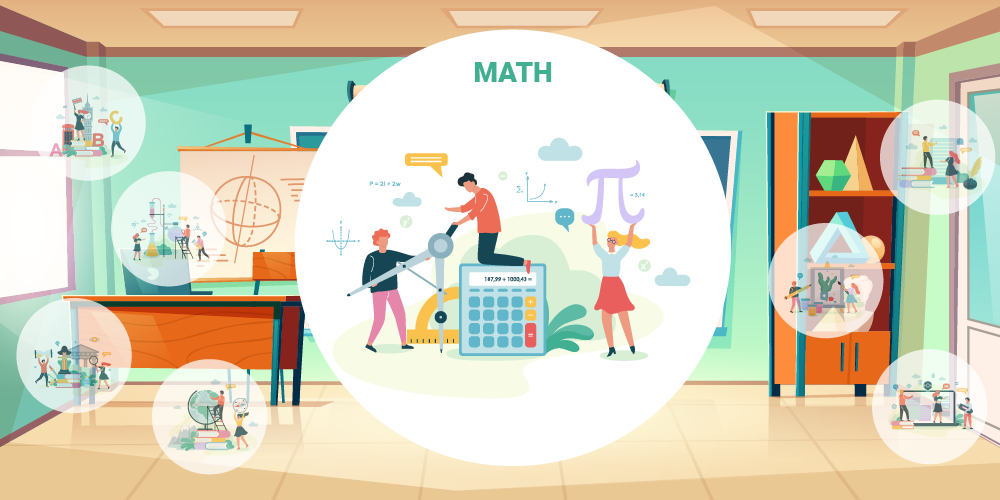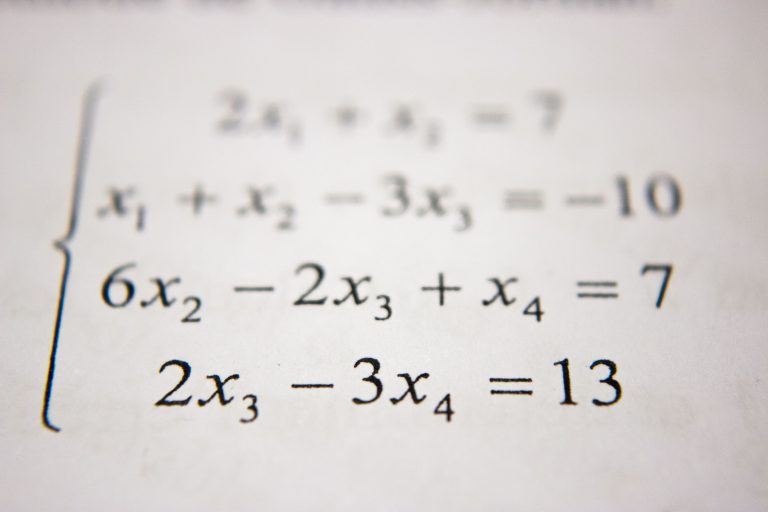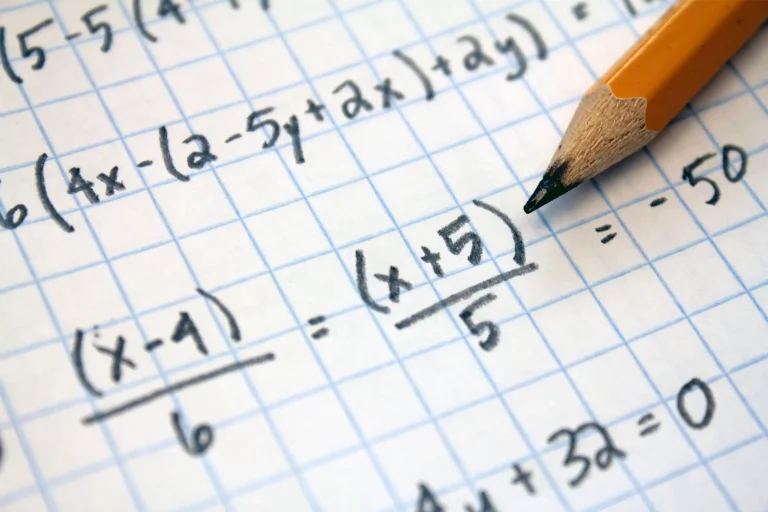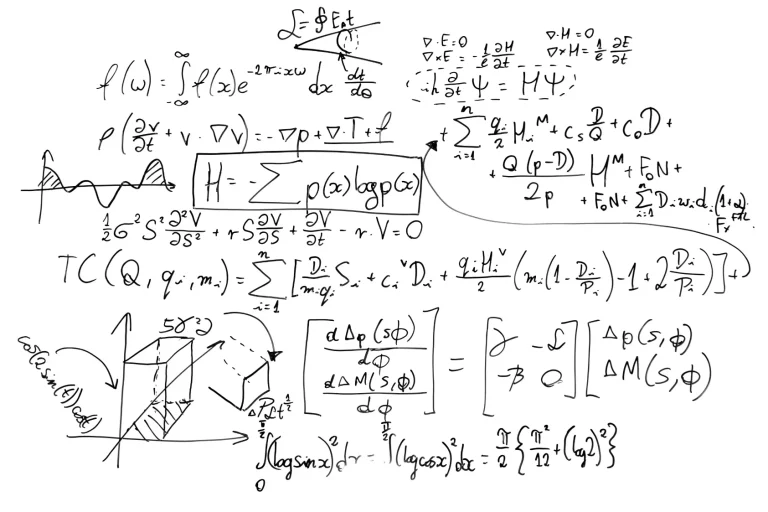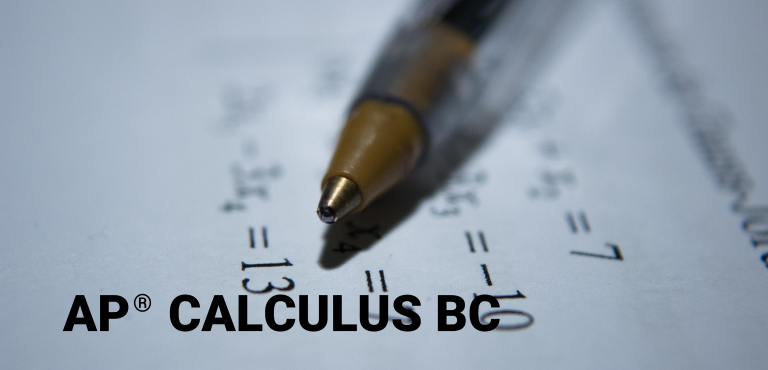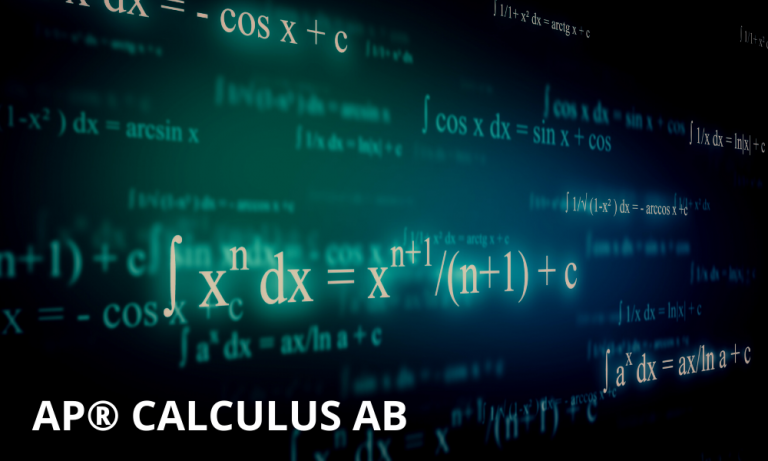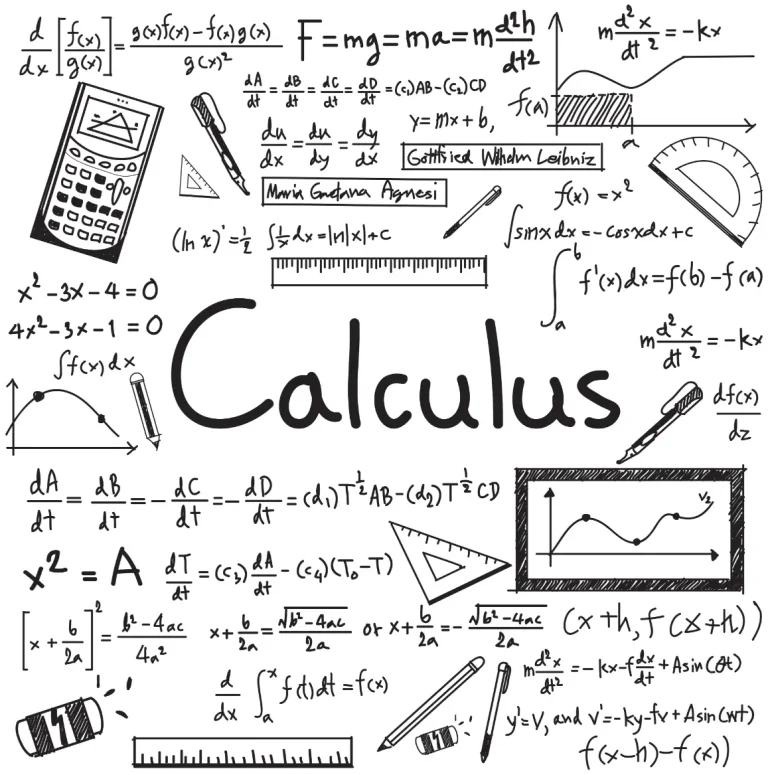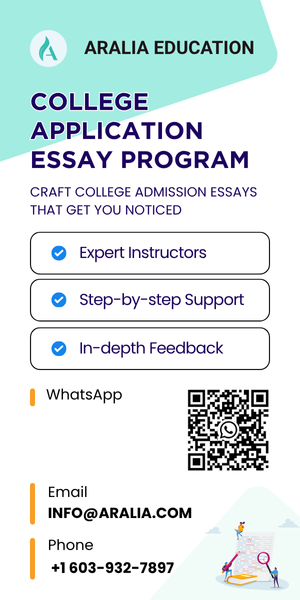There are numerous branches within high school math classes and choosing the right classes to take can be challenging for high school students. In this article, we will introduce the Common Core curriculum to help you better understand the standard and requirements of math classes in high school. After, we will also provide information about the list of Math classes available for you to take.
Enroll in Aralia’s Comprehensive Math Courses
Common Core Curriculum
According to the Common Core Curriculum standard for Math, schools are required to cover six areas in high school math courses:
Most high schools have minimum requirements include three years of math in order to graduate and recommend taking four years. These requirements often also include completing an algebra class and a geometry class.
General areas of math include:
- Number and Quantity
- Algebra
- Functions
- Modeling
- Geometry
- Statistics and Probability
Therefore, according to the Common Core standards, a typical order of core High School Math curriculum from freshman to senior year is:
- Algebra 1
- Geometry
- Algebra 2/Trigonometry
- Pre-Calculus
- Calculus
Before entering high school, students will take placement exams to determine the level of knowledge they currently have. Students who are interested in further pursuing Math in high school or college can consider more advanced Math classes, like Statistics, AP Calculus AB, AP Calculus BC, or other Math-related classes, such as Computer Science classes.
While different schools have different curricula, the majority at least loosely follow the Common Core standard. Below are some common high school math classes:
High School Math Classes
Algebra 1
This is the first high school math class when you enter the first high school year. In this course, you’ll study topics ranging from expressions, systems of equations, functions, real numbers, linear questions, polynomials, quadratic equations, and functions.
Students can be placed into this class for their freshman year, or other advanced math classes like Geometry or Algebra 2, based on their results of a placement test at the end of 8th grade beginning of their 9th-grade year.
Geometry
In the geometry class, you will study the relationships in geometric figures in a plane and in space, as well as mathematical methods such as deductive proof. The content is built upon Algebra I.
Algebra 2
Algebra 2 is a course sequence built upon the foundation of Algebra I. Topics you will study include rational number exponents, functions, quadratic functions, and complex numbers, solutions of linear and quadratic equations, inequalities, absolute value equations, polynomials, exponential, logarithmic, and rational functions.
Trigonometry
Many schools integrate the topics covered in Trigonometry into Pre-Calculus class. Trigonometry class is built upon the foundation of Algebra II, with the goal of preparing you for Precalculus. In this class, you will study algebra content and the algebraic and graphical study of the six elementary trigonometric functions.
Pre-Calculus
Precalculus will provide you with profound knowledge in trigonometric functions, polynomial and rational functions, and logarithmic and exponential functions. Pre-calculus will prepare you for taking Calculus or AP Calculus.
Calculus
During Calculus, students can expect to continue the material taught in Pre-Calculus and begin to study differentiation and integration of the elementary functions, with an emphasis on problem-solving. This is considered the advanced high school math courses you will take
AP Classes
For students who’re interested in STEM majors in college, taking AP classes such as AP Statistics, AP Calculus AB, or AP Calculus BC is an important jumpstart in the college application.
- AP Calculus AB: Explore the concepts, methods, and applications of differential and integral calculus. Generally equivalent to the 1st semester of college-level calculus.
- AP Calculus BC: Explore the concepts, methods, and applications of differential and integral calculus. This class includes all the content covered in AP Calculus AB and adds additional topics including parametric equations, polar coordinates, and vector functions, as well as infinite sequences and series. Generally equivalent to the 2 semesters of college-level calculus, allowing students to start in multi-variable calculus in college.
- AP Statistics: Explore major concepts and tools used for collecting, analyzing, and drawing conclusions from data.
Honors Classes
Besides regular and AP classes, schools will also offer honors mathematics classes. Honors classes are taught with greater depth and breadth at a higher pace and are suitable for students who want and can handle challenging and advanced math topics.
Computer Science
Computer Science courses are real-world applications of math, with classes ranging from Algorithms to Graph Theory with Python, depending on the school. The focus of computer science electives is to provide you with knowledge about real-world application of math as well as introductory knowledge about programming.
The College Board offers two AP Computer Science exams:
- AP Computer Science A: Learn the concepts and tools of computer science through the Java programming language. Then, apply the knowledge learned to design, write, and test computer programs that solve problems or accomplish tasks.
- AP Computer Science Principles: Learn the principles that underlie the science of computing and develop the thinking skills that computer scientists use. Students work on their own and as part of a team to creatively address real-world issues using the tools and processes of computation. This class teaches more of the concepts of how computers work and is recommended for students without knowledge in the area.
Improve Your Math Grades Within One Semester
Order of Math Classes During High School
Regardless of focus for college majors, students will go through a similar progression of Math classes to ensure that they’re prepared for the academic rigor in college. Upon entering high school, students may do placement exams to be placed in an appropriate Math class. If not, students will enter freshman year in high school studying Algebra 1, then Geometry, Algebra 2, finally Pre-Calculus.
Students may or may not study Calculus in high school, depending on whether they decided to study advanced mathematics through advanced courses or Advanced Placement Courses. Some schools may teach Algebra 1 and 2 together for curriculum consistency or include other fields of mathematics such as trigonometry, geometry, etc.
Let’s use Phillips Andover Academy as an example to understand the Math progression during high school. Upon entering the school, students have to take the placement at 500-level (freshman level) or higher course or Math 400 (Uppers and Seniors). Then, students progress to the completion of Math 280 – Geometry and Precalculus or 340 – Precalculus until graduation (each course is 3 terms).
Take your interest in Math and Computer Science further...
If you’re interested in Math and want to discover ways to advance your knowledge, consider four ways to be involved and improve:
Design your own class
If your school has a strong Math and Computer Science curriculum or STEM (Science, technology, Engineering, Mathematics) field curriculum, you will be more likely to have an independent study opportunity available. Independent study is where you take your topic of interest in a subject and conduct art research/study 1-on-1 with a teacher.
If you are interested in statistics or finance, math, or computer science in general, you can reach out to a Math or CS teacher at school to express your interest and ask for mentorship in the independent study of your choosing. The initiative to advance your study will help you in college and in your career and create a great impression with the college admission board when you submit your application.
Participate in Math Competitions
High school competitions are a great way to stand out in the application pool! In the college admission process, if your standardized test scores are entry passes to enter the college’s door, extracurricular activities are what make you stand out to the admissions officer. Extracurricular activities can range from participation in Math Club, or competing in regional, national, and international math competitions. One of the most longest-standing and prestigious math competitions is definitely the AMC (American Mathematics Competition), which has 3 levels, AMC 8, AMC 10, and AMC 12. But, there are more math-related competitions, for the full list, you can check out our newly published Infographic: High school competition to boost your profile.
For students who are interested in AMC and want to learn more about the competition, don’t forget to read this comprehensive guide to AMC. We also have various AMC preparation classes for students who are interested in competing in the contest. Click on the class page to learn more!
Aralia Academic Empowerment Program fosters academic excellence and empowers students to reach their full potential. Our program offers personalized attention and a results-driven approach aimed at improving GPA and overall academic performance within just one month. With a focus on strengthening foundational knowledge, enhancing specific skills, and surpassing academic standards, Aralia provides expert guidance and support in a variety of subjects. Our Mathematics classes include Algebra I, Algebra II, Geometry, and Pre-Calculus. Whether you’re aiming to boost your grades, solidify your understanding of key concepts, or excel in advanced topics, the Aralia Academic Empowerment Program is here to help you succeed.

